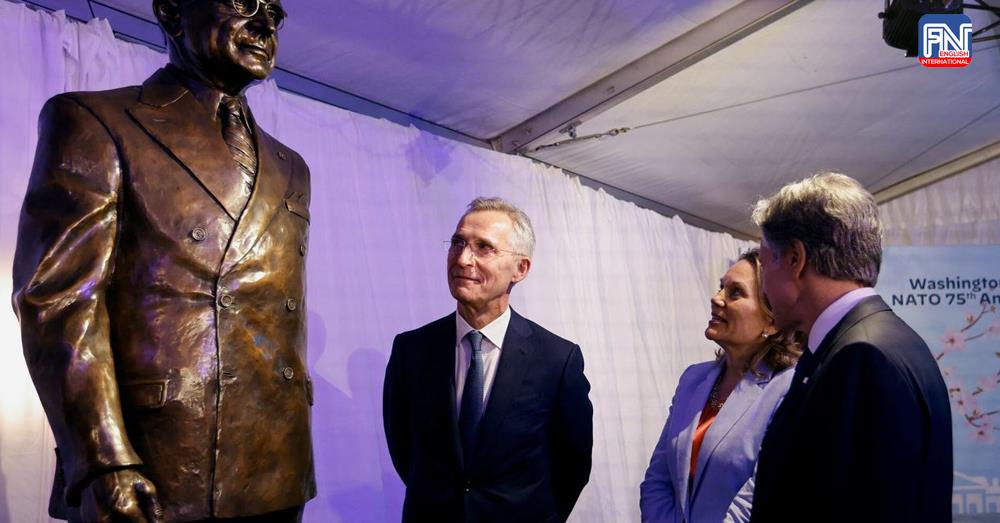BRUSSELS, Apr. 4 (Reuters) - NATO foreign ministers meet on Thursday to celebrate the 75th anniversary of their alliance, having agreed to start planning for a greater role in coordinating military aid to Ukraine.
On the second day of a meeting in Brussels, the ministers will mark the signing in Washington on April 4, 1949, of the North Atlantic Treaty that established the transatlantic political and military alliance.
"As we face a more dangerous world, the bond between Europe and North America has never been more important," NATO Secretary General Jens Stoltenberg said on Wednesday.
NATO began with 12 members from North America and Europe, founded in response to growing fears that the Soviet Union posed a military threat to European democracies.
At its heart is the concept of collective defence, the idea that an attack on one member is considered an attack on all, giving U.S. military protection to Western Europe.
Seventy-five years later, NATO has 32 members and has retaken a central role in world affairs, after Russia's war in Ukraine prompted European governments to view Moscow once more as a major security threat.
NATO's two newest members, Finland and Sweden, joined in direct response to Russia's invasion of Ukraine in 2022.
"Democratic nations, free people chose to join (NATO) unlike how Russia expands by annexation or illegal aggression," Finnish Foreign Minister Elina Valtonen told reporters.
Russia said on Wednesday that NATO had returned to a Cold War mindset. Foreign Ministry spokeswoman Maria Zakharova told reporters NATO had no place in the "multipolar world" Moscow says it seeks to build to end U.S. dominance.
NATO ministers agreed to start planning for a greater NATO role in coordinating security assistance and training for Ukraine.
Under a proposal by Stoltenberg, NATO would take over work done by a U.S.-led ad-hoc coalition known as the Ramstein group, in part to guard against any cut in U.S. support if Donald Trump returns to the White House, diplomats said.
Stoltenberg has also proposed a fund of 100 billion euros (about $108 billion) to support Ukraine's military over five years, according to diplomats.
It is not clear whether that figure will be accepted by NATO, which takes decisions by consensus.
Latvian Foreign Minister Krisjanis Karins said there had generally been a "positive attitude" towards the proposal, but that details would now need to be worked out ahead of a leaders' summit in Washington in July.
On Thursday, the ministers will also meet with Ukrainian Foreign Minister Dmytro Kuleba. Kuleba told Reuters he would press them to provide more Patriot air defence systems to protect against frequent Russian ballistic missile attacks.
"Partners did provide us with their different (air defence) systems, we appreciate that, but it's just simply insufficient, given the scale of the war," Kuleba said.
NATO countries could spare more Patriots if they had the political will to do so, he said.
($1 = 0.9229 euros)

Photo from Reuters




